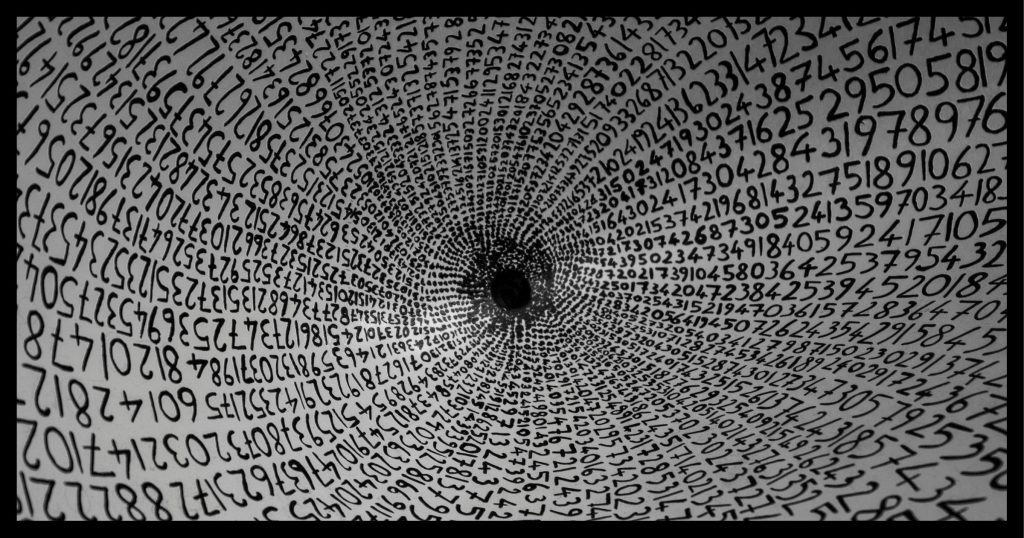
We have a difficult time comprehending really large and really small numbers.
This often makes us vulnerable to misunderstanding and manipulation.
A long time ago I heard a joke about a primitive tribe that had words for numbers like one, two, and three, but anything beyond was just “many”. (My vague memory is that the joke discussed promiscuity; fortunately not our topic here.)
It feels like we’re not far removed from that tribe.
Where this hurts us the most is when it comes to statistics. This, in turn, manifests in two ways:
- It’s very easy to misrepresent information using statistics. Hence the old saying “lies, damned lies, and statistics.”
- We’re horrible at judging risk. More people die in automobile accidents every year than in airplane accidents. Air travel is demonstrably safer per mile of travel. And yet, which makes us more nervous?
It goes beyond statistics, though.
Consider: do you really have any sense of the difference between a million, a billion, and a trillion? That a trillion is a million million has no basis for comparison — it’s effectively meaningless. The U.S. debt, for example, might as well just be termed “many” dollars.
There are psychological factors at play. We are more certain of things we believe are within our control, no matter the numbers involved. Hence, feeling more secure in a car than in an airplane, or more secure as a driver than a passenger.
We’re also more certain of things we have experience with. A debt of $10,000 is tangible, because perhaps you’ve had experience with it. A debt of $1,000,000,000,000 is, once again, practically meaningless.
This lack of comprehension and understanding makes us vulnerable.
We end up doing dangerous things because we don’t understand just how dangerous they are.
We end up throwing money away, say in lotteries, because we don’t understand just how heavily the odds are stacked against us. (That lotteries are a “tax on people who don’t understand math” isn’t far from the truth.)
We end up letting politicians manipulate us into supporting their ideas because we have no comprehension of just how outrageously large the numbers they’re throwing around are.
The list goes on.
The solution, if there is one, is an understanding of basic math, numbers, and statistics. It doesn’t have to be deep, just practical and pragmatic.
I would hope this would be part of basic, pragmatic education. From what I see, it may not always be the case. Education, of late, seems to be anything but focussed on the practical and pragmatic.
Comfort with a basic understanding of numbers and statistics is one way to protect you from any number of manipulations.

Finland has the best education system in the world and
https://www.weforum.org/agenda/2018/09/10-reasons-why-finlands-education-system-is-the-best-in-the-world
is one search that seems to support your perspective.
It may be no coincidence Finland is the happiest country in the world as well per URLs like
https://www.bloomberg.com/news/articles/2022-03-18/world-s-happiest-ranking-goes-to-finland-for-fifth-year-in-a-row#:~:text=Finland%20was%20crowned%20the%20happiest,Solutions%20Network%20said%20on%20Friday.
However if addition and subtraction are taught competently in grade school, there should be little need for a practical course on how to balance a check book or modify a recipe.
I disagree with the last point. Abstract addition and subtraction are quite different then practical applications and life skills. Consider how many people have trouble with / hate “story problems” — and yet life is a story problem. Practical application doesn’t have to teach the fundamentals, but practical application still needs to be taught.